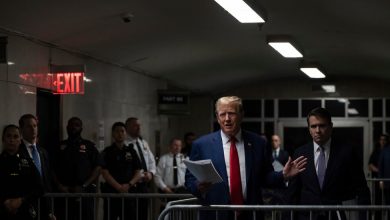Foxconn, Apple’s Manufacturer in China, Is Said to Be Under Tax Audit

Foreign and local companies in China are increasingly the targets of tax audits and other regulatory reviews, as local governments try to steady their finances by collecting more revenue.
The latest company to come under scrutiny is Foxconn of Taiwan. Chinese state media outlets reported on Sunday that the company was facing investigations in four provinces.
Foxconn, one of the world’s largest manufacturers of electronics, is Apple’s main contractor for the production of everything from iPhones to MacBook laptop computers.
Global Times, a nationalistic tabloid and website owned by the Communist Party of China, said that Foxconn faced tax inspections in Guangdong and Jiangsu Provinces and was being investigated in Henan and Hubei Provinces to determine whether it had complied with land use regulations.
Foxconn, whose full name is Hon Hai Technology Group, issued a statement hours later that said the company would comply with its legal obligations: “Legal compliance everywhere we operate around the world is a fundamental principle of Hon Hai Technology Group (Foxconn). We will actively cooperate with the relevant units on the related work and operations.”
Last Thursday, Tim Cook, Apple’s chief executive, met in Beijing with Jin Zhuanglong, China’s minister of industry and information technology. “The two sides exchanged views on Apple’s development in China, industrial chain supply chain cooperation and other issues,” the ministry said in a statement afterward.
In recent months, central government authorities have warned local and provincial governments facing budget shortfalls not to use arbitrary fines to raise money. Beijing is trying hard to woo foreign investment to strengthen economic growth and maintain China’s leading role in global supply chains.
An article last Wednesday in Study Times, the official publication of the Communist Party’s most elite training institute, the Central Party School, warned that inappropriate use of fees and intervention by local governments could lead to “ultimately disrupting the business order, damaging the business environment, and affecting the confidence of the business.”
Deep uncertainty in the real-estate market has left many local governments facing financial hardship. Their biggest source of revenue, the sale of land leases to property developers, has dried up in all but the largest cities. The two developers that vied for national leadership over the past several years, China Evergrande and Country Garden, are in peril, unable to make punctual debt payments.
Local governments face soaring health care and pension costs for an aging population. The national government makes some financial transfers to these local governments, but has done little to assume direct responsibility for the cost of social benefits.
At the same time, Beijing has pressured local governments to step up their spending on the construction of rail lines, highways, bridges and other infrastructure, as part of an effort to reduce unemployment. Joblessness among Chinese in their late teens and early 20s reached record levels by early summer, prompting the National Bureau of Statistics to stop releasing youth unemployment data.
Siyi Zhao contributed research.




